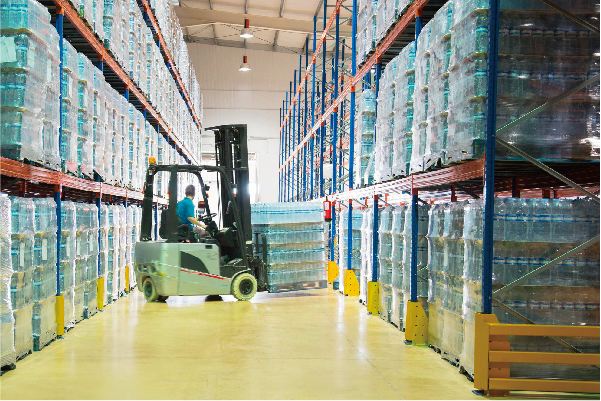Navigating the Evolving Electric Vehicle Market: A Focus on
In recent months, the European Union, the United States, and Canada have unveiled strategies aimed at restricting the importation of Chinese-made electric vehicles (EVs). These measures stem from concerns regarding the subsidies offered by the Chinese government, which are perceived as unfair and potentially harmful to local automotive industry players. Despite these challenges, leading Chinese EV manufacturers, such as BYD, Li Auto, and XPeng, reported notable increases in year-on-year sales for August.
Tesla has also seen a significant uptick in its electric vehicle sales, spanning both domestic transactions within China and exports to international markets. This surge indicates a recovery in global demand for EVs and suggests that Chinese manufacturers may be well-positioned to navigate the regulatory hurdles posed by new tariff structures introduced by North America and Europe in the current year.
BYD, recognized as the top-selling Chinese EV brand, recorded an exceptional month with new energy vehicle sales rising by 30% year-on-year to a total of 373,083 units for August. The company’s report highlights a 48% increase in deliveries of plug-in hybrid EVs, while sales of battery electric vehicles saw a more modest rise of 12%. Notably, overseas sales of New Energy Passenger Vehicles (NEPVs) reached 31,451 units, accounting for 8% of BYD's total NEPV sales. In the first seven months of the year, BYD reported overseas sales of 270,000 units, representing 14% of its total sales, underscoring its ambition to hit an export target of 500,000 units by year-end.
Li Auto also experienced robust growth among its peers, posting a year-on-year sales increase of 37.8% to 48,122 vehicles in August, despite a slowdown of 5.6% compared to July. Furthermore, XPeng registered 14,036 EV deliveries during the same period, reflecting a 2.5% increase from the previous year and a commendable 26% rise from July’s figures. Premium EV manufacturer Nio sold 20,176 electric vehicles, marking a 4% year-on-year increase.
Tesla’s vehicles manufactured in China reported a 3% growth in sales for August, as per data from the China Passenger Car Association (CPCA). Deliveries of its Model 3 and Model Y surged by 17% compared to the previous month. This growth encompasses both local and export sales, illustrating how Tesla continues to leverage China's favorable policy environment to its advantage.
The proposed limitations on Chinese electric vehicles are severe, with the U.S. and Canada suggesting 100% tariffs on imports from China, while the European Union is considering lower tariffs. Just two weeks ago, the EU announced a reduction in the additional tariff on Tesla's EVs produced in China from a planned 20.8% to 9%, which is significantly less than the rates proposed for other manufacturers, such as 36.3% for SAIC, 19.3% for Geely, and 17% for BYD.
The EU's tariff adjustment is pending approval from a majority of its 27 member states, with a deadline set for October 31. Should this be sanctioned, the new tariffs would remain effective for a five-year period. According to Dataforce, registrations for China-made EVs in Europe declined by 9.7% year-on-year in July, a drop attributed to these newly proposed tariffs. However, this was a marked improvement from the 30% fall recorded in June, suggesting that the impact of these tariffs may be less enduring than initially thought.
In response to the evolving trade landscape, Chinese automotive manufacturers are strategically establishing production facilities in overseas markets to mitigate the effects of impending tariffs. BYD is investing significantly in expanding its manufacturing footprint across Europe, Asia, and South America, with new facilities planned in countries like Hungary, Brazil, and Turkey, although it has paused plans for a plant in Mexico due to uncertainties related to the upcoming U.S. elections. Meanwhile, SAIC has opened three production plants in Thailand, Indonesia, and India, and Chery Auto is moving forward with plans for its inaugural European factory in Catalonia, Spain.
The shifts in the EV market landscape are indicative of a broader trend where manufacturers begin to localize production in response to changing regulatory climates, further illustrating the dynamic and competitive nature of the global electric vehicle market. As Chinese EV manufacturers adapt, their ability to innovate and expand internationally may redefine their place in this rapidly growing industry.
Tesla has also seen a significant uptick in its electric vehicle sales, spanning both domestic transactions within China and exports to international markets. This surge indicates a recovery in global demand for EVs and suggests that Chinese manufacturers may be well-positioned to navigate the regulatory hurdles posed by new tariff structures introduced by North America and Europe in the current year.
BYD, recognized as the top-selling Chinese EV brand, recorded an exceptional month with new energy vehicle sales rising by 30% year-on-year to a total of 373,083 units for August. The company’s report highlights a 48% increase in deliveries of plug-in hybrid EVs, while sales of battery electric vehicles saw a more modest rise of 12%. Notably, overseas sales of New Energy Passenger Vehicles (NEPVs) reached 31,451 units, accounting for 8% of BYD's total NEPV sales. In the first seven months of the year, BYD reported overseas sales of 270,000 units, representing 14% of its total sales, underscoring its ambition to hit an export target of 500,000 units by year-end.
Li Auto also experienced robust growth among its peers, posting a year-on-year sales increase of 37.8% to 48,122 vehicles in August, despite a slowdown of 5.6% compared to July. Furthermore, XPeng registered 14,036 EV deliveries during the same period, reflecting a 2.5% increase from the previous year and a commendable 26% rise from July’s figures. Premium EV manufacturer Nio sold 20,176 electric vehicles, marking a 4% year-on-year increase.
Tesla’s vehicles manufactured in China reported a 3% growth in sales for August, as per data from the China Passenger Car Association (CPCA). Deliveries of its Model 3 and Model Y surged by 17% compared to the previous month. This growth encompasses both local and export sales, illustrating how Tesla continues to leverage China's favorable policy environment to its advantage.
The proposed limitations on Chinese electric vehicles are severe, with the U.S. and Canada suggesting 100% tariffs on imports from China, while the European Union is considering lower tariffs. Just two weeks ago, the EU announced a reduction in the additional tariff on Tesla's EVs produced in China from a planned 20.8% to 9%, which is significantly less than the rates proposed for other manufacturers, such as 36.3% for SAIC, 19.3% for Geely, and 17% for BYD.
The EU's tariff adjustment is pending approval from a majority of its 27 member states, with a deadline set for October 31. Should this be sanctioned, the new tariffs would remain effective for a five-year period. According to Dataforce, registrations for China-made EVs in Europe declined by 9.7% year-on-year in July, a drop attributed to these newly proposed tariffs. However, this was a marked improvement from the 30% fall recorded in June, suggesting that the impact of these tariffs may be less enduring than initially thought.
In response to the evolving trade landscape, Chinese automotive manufacturers are strategically establishing production facilities in overseas markets to mitigate the effects of impending tariffs. BYD is investing significantly in expanding its manufacturing footprint across Europe, Asia, and South America, with new facilities planned in countries like Hungary, Brazil, and Turkey, although it has paused plans for a plant in Mexico due to uncertainties related to the upcoming U.S. elections. Meanwhile, SAIC has opened three production plants in Thailand, Indonesia, and India, and Chery Auto is moving forward with plans for its inaugural European factory in Catalonia, Spain.
The shifts in the EV market landscape are indicative of a broader trend where manufacturers begin to localize production in response to changing regulatory climates, further illustrating the dynamic and competitive nature of the global electric vehicle market. As Chinese EV manufacturers adapt, their ability to innovate and expand internationally may redefine their place in this rapidly growing industry.




 Follow us on Wechat
Follow us on Wechat